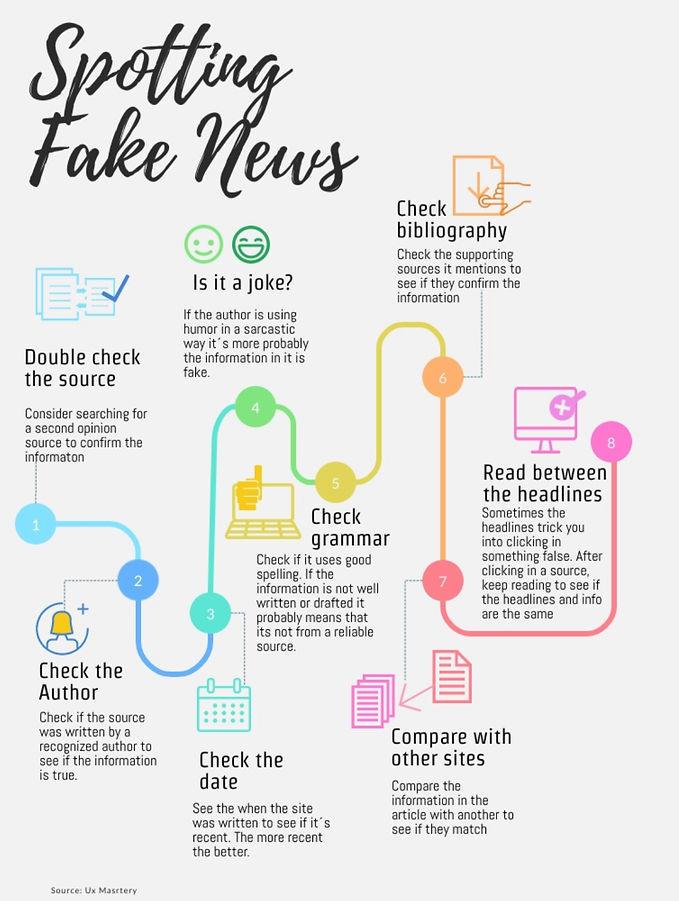
Spot and Avoid Fake News

Now at days, social media is known for the strongest source to promote or persuade people to change, but the new technology has allowed people to fake some of the posts, videos or news on social media. Which means we have the risk to fall into fake news very easily. Social media can transform your mind. Our brain has a lot of automatic functions that are pretty great, but when it comes to media there are a few that aren’t. Media has the ability to brainwash society.
Have you ever seen an add about free Starbucks for a year? These websites just ask your personal information. Even though it looks real, it can be fake and trick you into falling and giving private information. This is why falling into fake news is so dangerous and you have to do anything to prevent this.
Media literacy gives us the ability to access from a device to a website. Access is the first step into looking for social media. After, you should always analyze to make sure it’s confidential, which means looking if it’s reliable or not. Acknowledging that all media it’s constructed with a purpose and a particular point of view. If the author has a point of view it means he’ll just write to convince you to be in his side. Which means not all information will be given, only the one that supports his point of view. This websites are not so reliable. How can you analyze any website?
Renee Hobbs recommends answering 5 questions while analyzing:
-
Who created this message and what is the purpose?
-
What techniques does it use to attract and hold attention?
-
What lifestyle, values and points of view does it depict?
-
How might different people interpret this message?
-
What is omitted, or left out?
These five questions can help you analyze completely before believing anything. You should always evaluate the quality and credibility of the media you’re consuming
There are 4 key things to look out for when looking for fake news: number 1: ask yourself, does the info or media serve it’s purpose and to what degree?, is it relevant? While searching for something the websites appearing can have no relevance whatsoever. The information you’re reading should always have a purpose so you’re not just reading pure nonsense. Number 2: check accuracy, check how factual it is. Is the information backed up by evidence or is it just someone’s opinion? Number 3: check bias, distinguish whether the author of the media you’re evaluating has a particular point of view. Number 4: check how trustworthy a publisher or author is based on the entirety of their work.
Check the reliability of the article.
Finally the most important part of media literary is being able to act, do something. Acting on media literacy could mean looking up local candidates for government and using that info when you vote. It could mean going vegan after reading about animal farms. It could even mean deleting Twitter from your phone after realizing you’re addicted to social media.
In conclusion, always check twice the trustworthy that what you’re reading has. You don’t want money to be stolen from your account, you don’t want falling into an unhealthy diet, you simple don’t want to be tricked into fake stuff.



